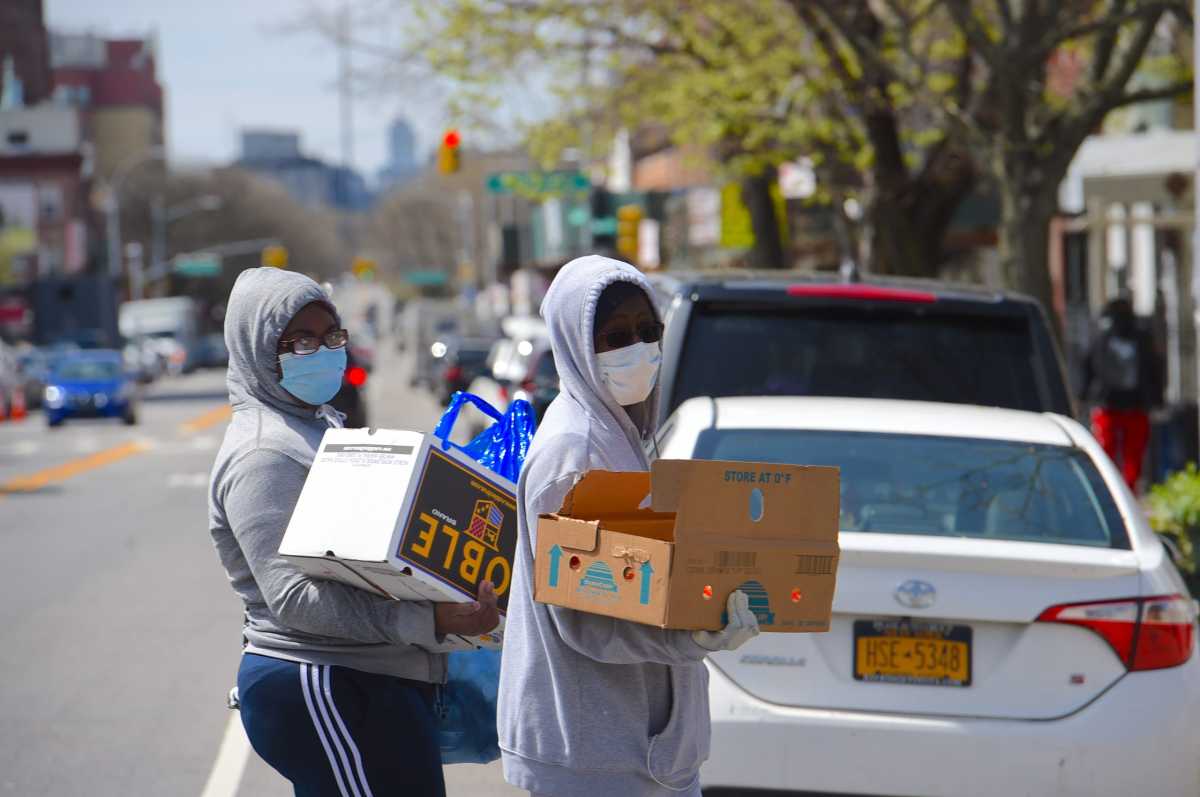Mayor Bill de Blasio announced a $170 million initiative to help feed New Yorkers on top of his $25 million plan to allow emergency food distributors to stock up on food, equipment or hire staff.
Before the pandemic, about 1.2 million New Yorkers were food insecure, meaning they did not have reliable access to their next meal, according to the Food Bank for New York City. That number has already grown with food pantries and soup kitchens reporting a 60 percent increase in demand. That number is expected to skyrocket as the novel coronavirus’ blow to the economy causes more people to struggle to pay for food.
The city will lose up to 100,000 retail jobs, 86,000 hotel and restaurant jobs and 26,000 more in art and entertainment sectors by the end of June, according to a preliminary report from the New York Independent Budget Office. The study projects job losses could continue until as late as early 2021.
The new initiative will build off the city’s already existing efforts to supply pantries and soup kitchens across the five boroughs and deliver meals to the elderly or physically impaired New Yorkers, according to the mayor.
Since March 16, four days after Mayor Bill de Blasio officially declared the city in a state of emergency because of the virus, it has served 4.5 million meals to New Yorkers. The Department of Education’s grab-and-go meals accounts for the vast majority of those meals, over 3 million, according to New York City Food Czar Kathryn Garcia.
The remaining meals have been delivered by the Department of Aging delivered and emergency management food deliveries to food distributors like pantries, according to the mayor. According to Garcia, the Department of Aging has delivered over 300,000 meals to seniors. The agency has received criticism though for letting some of the city’s elderly fall through the cracks.
By the end of April, the mayor’s office is guessing, city agencies will have enough food to produce 10 million meals with even more anticipated for the next month.
“That number could easily be somewhere between 10 million and 15 million meals in May at the rate we are going,” said Mayor de Blasio during his daily novel coronavirus briefing on Wednesday.
De Blasio emphasized the importance of maintaining a strong food supply expressing worries that even the smallest kink in the chain could have a devastating effect. The virus has squashed meat and dairy supplies as demand plummets from shuttered restaurants and workers at factories, eateries and grocery stores become sick from the virus.
To combat a potential distribution disruption, $50 million of the mayor’s $170 million initiative will be set aside for emergency food reserves. Those funds will allow the city to buy 18 million “shelf stable meals” to store. The mayor is now also requiring that all supermarket employees be given personal protective equipment, like gloves and face masks, all shoppers to wear face coverings, and that stores must now place signs indicating stating the requirement.
“This will help everyone to remember when they’re in that kind of space, it’s so important to protect each other, to protect the whole community,” said de Blasio.
Any customer that refuses to wear a face-covering inside of a supermarket or grocery store can be denied entrance, said the mayor.
“We will back up those doors, we will help you to enforce the rules,” de Blasio warned.
The next phase of the city’s emergency delivery program will focus on registering entire buildings, like NYCHA buildings and senior NYCHA buildings, and other nonprofit buildings to reach the city’s most vulnerable, according to Garcia. The city has also contracted 11,000 for-hire drivers who are licensed through the Taxi and Limousine Commission to deliver food.
About 90% of all of New York City’s food comes in by truck. Part of the second phase includes creating two rest areas in Staten Island and in Hunts Point to offer weary drivers a respite from long days.



































